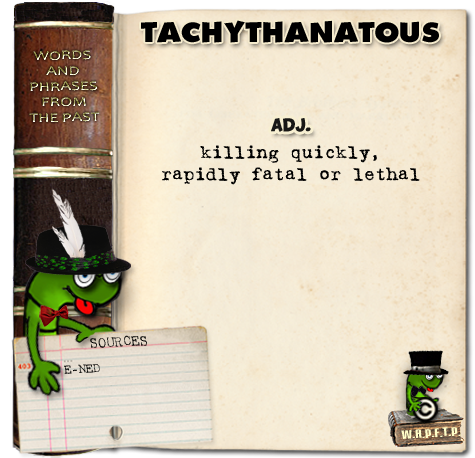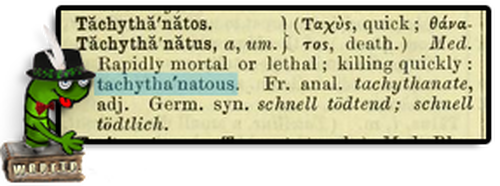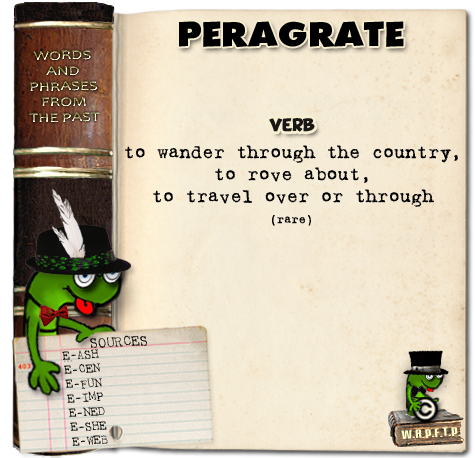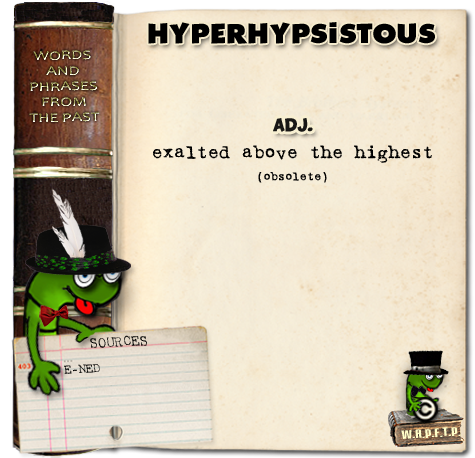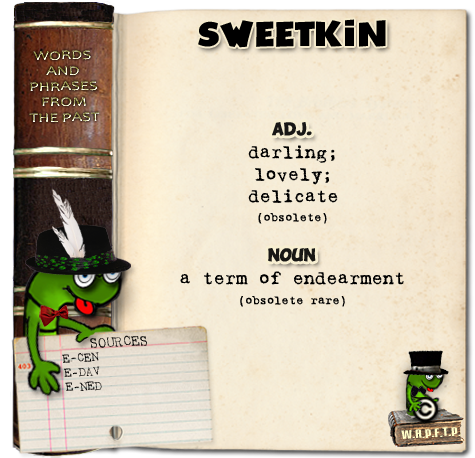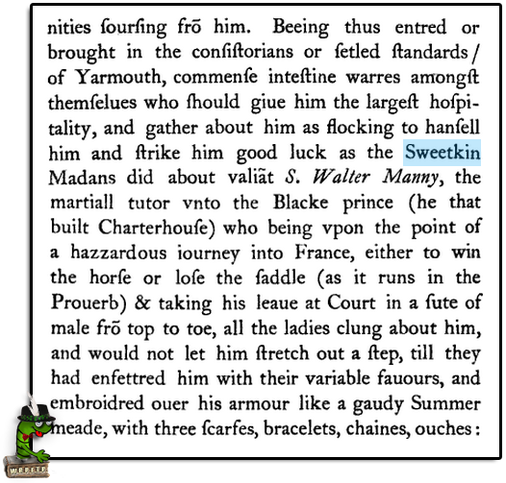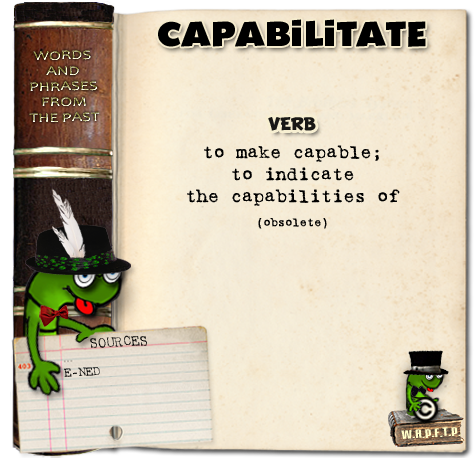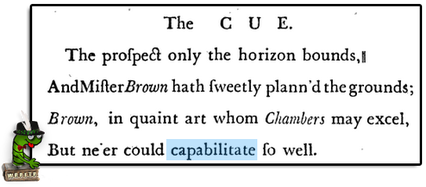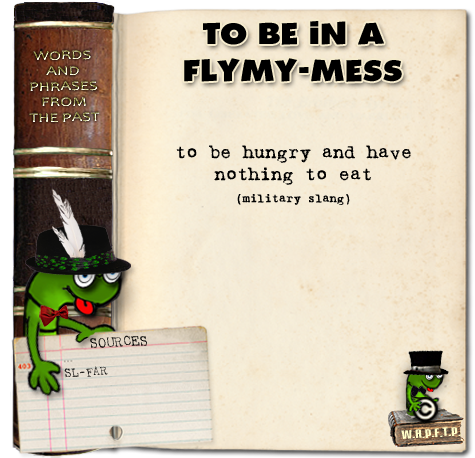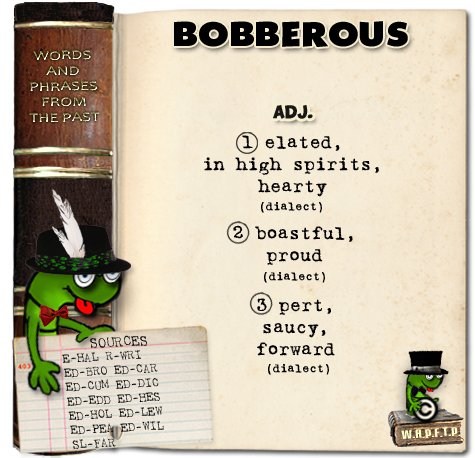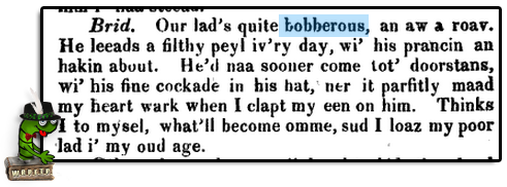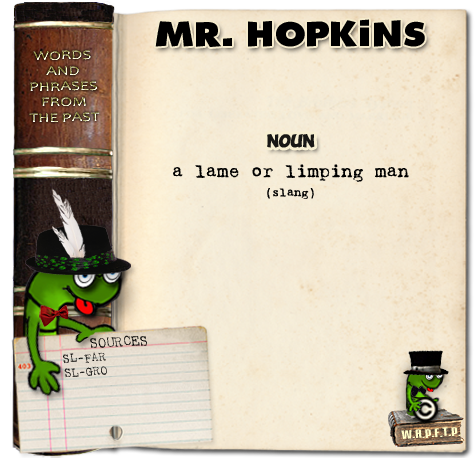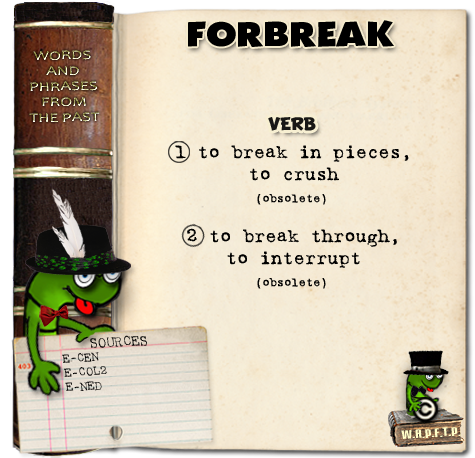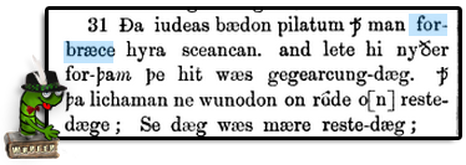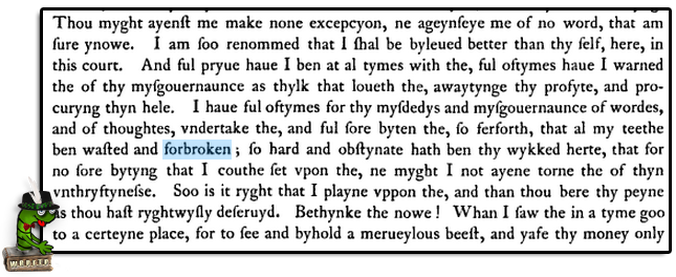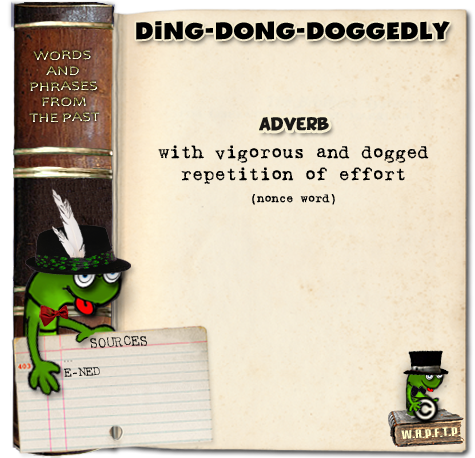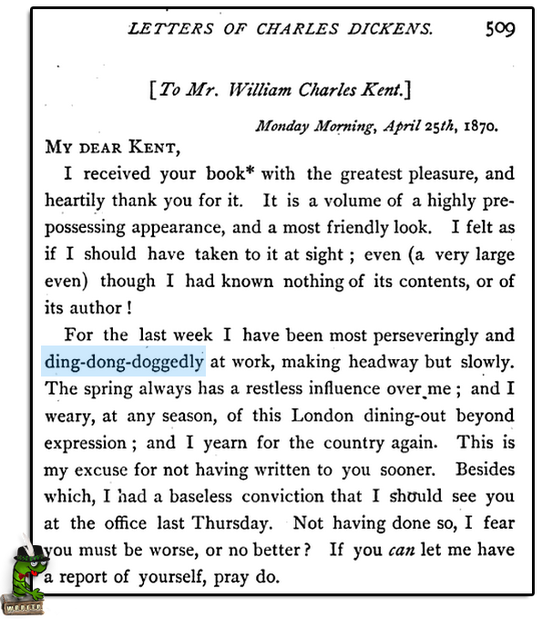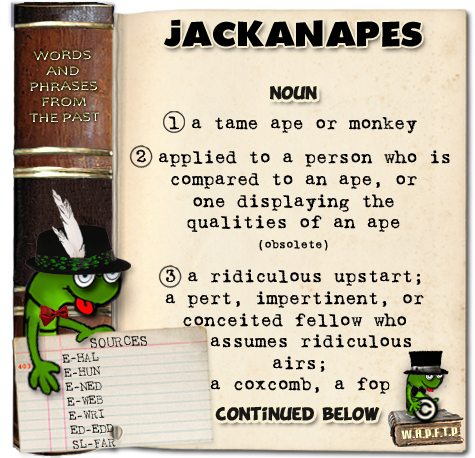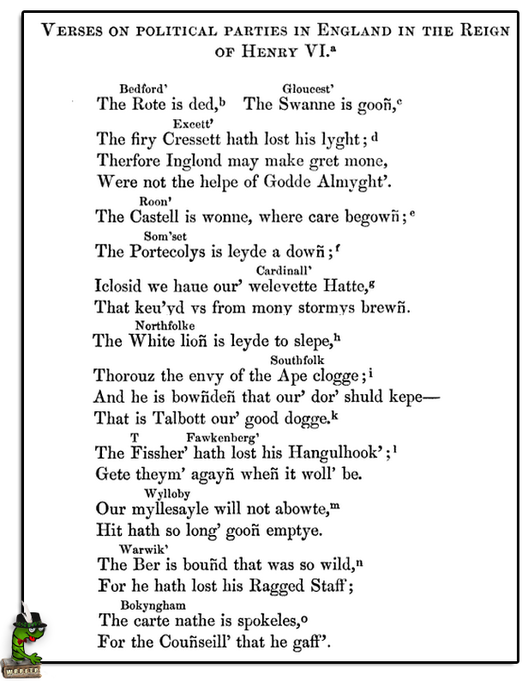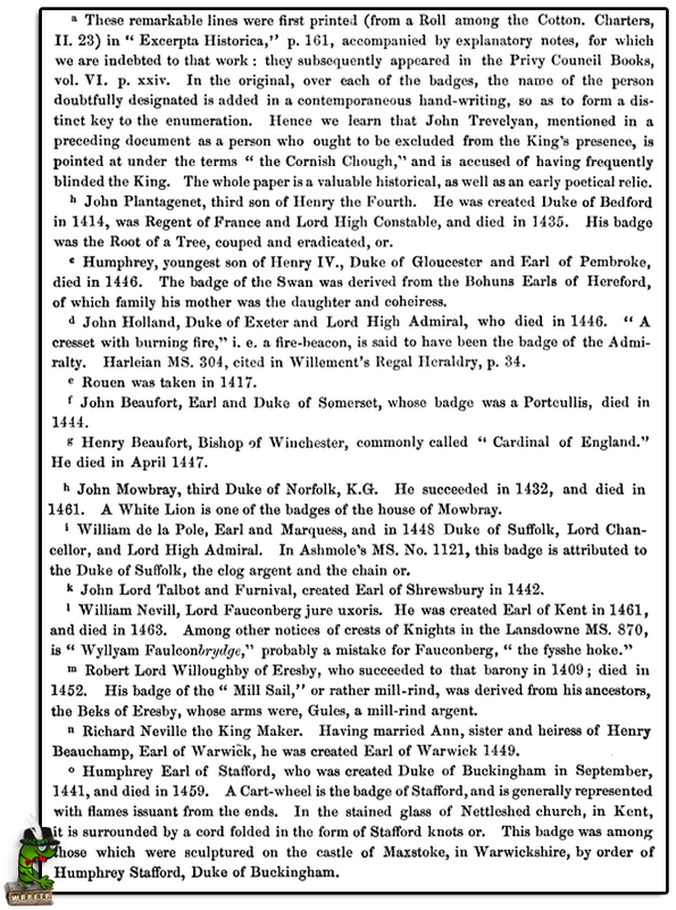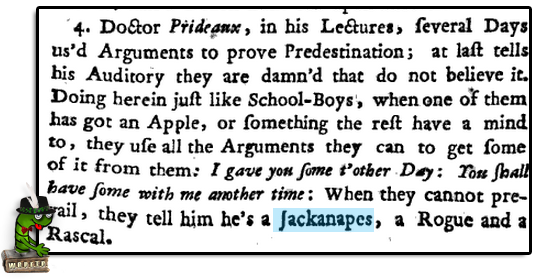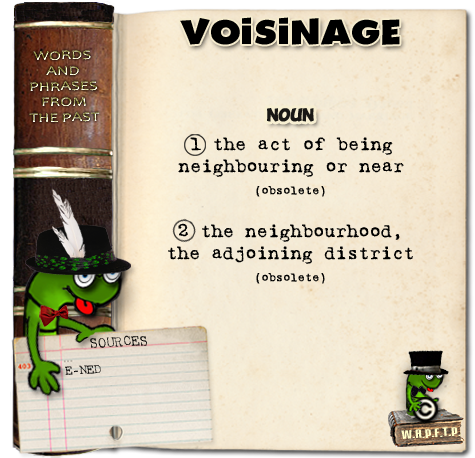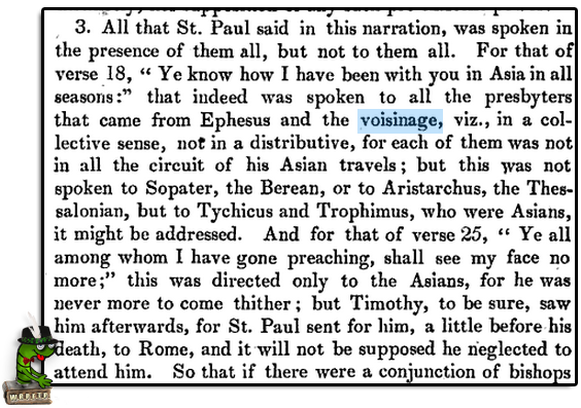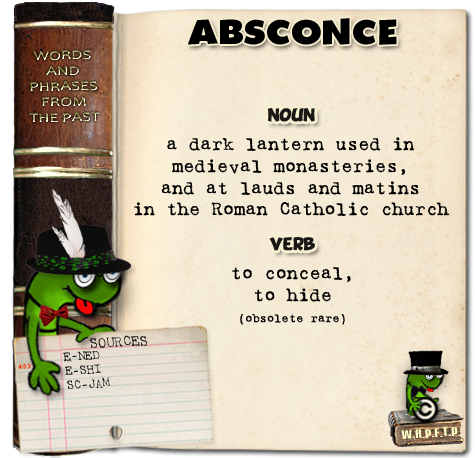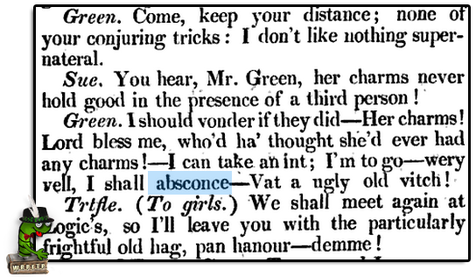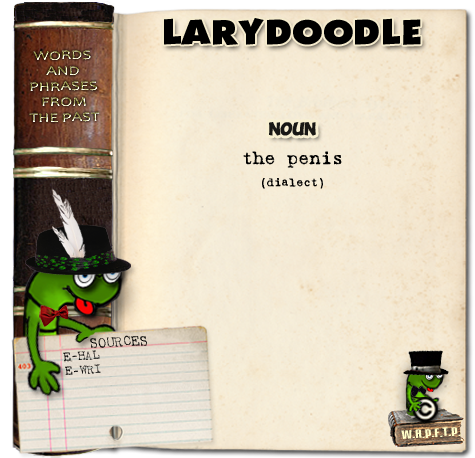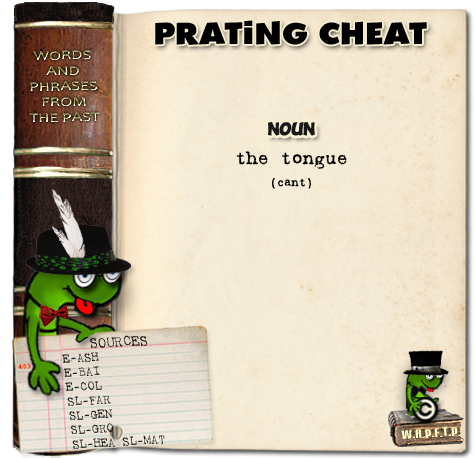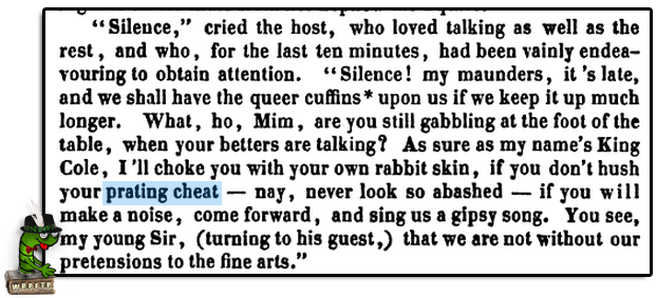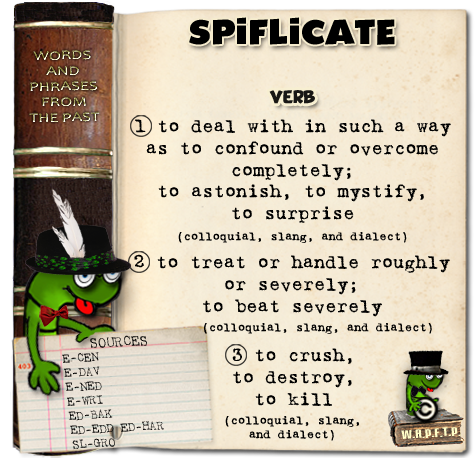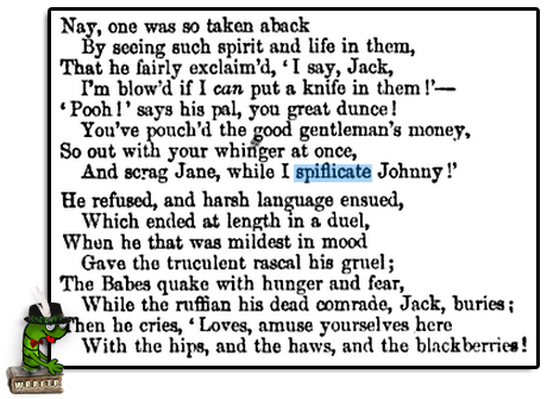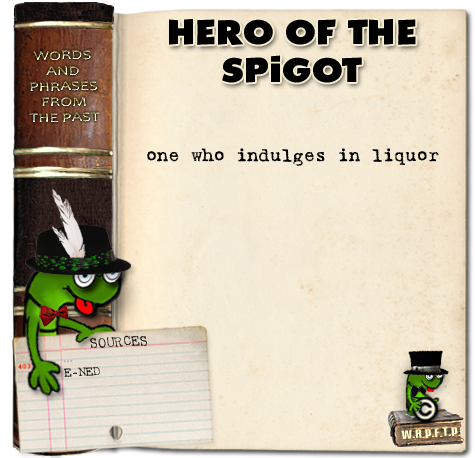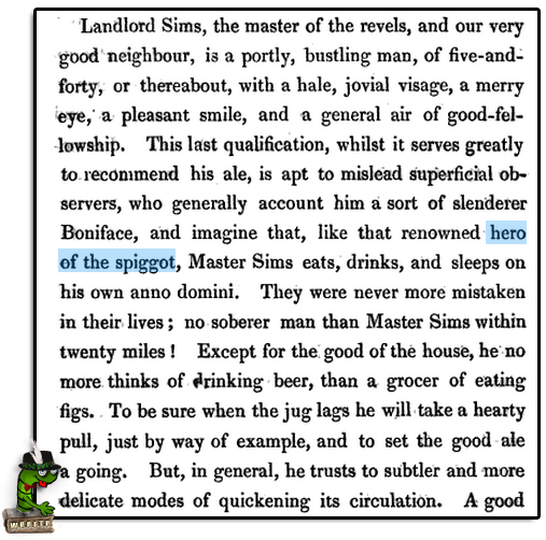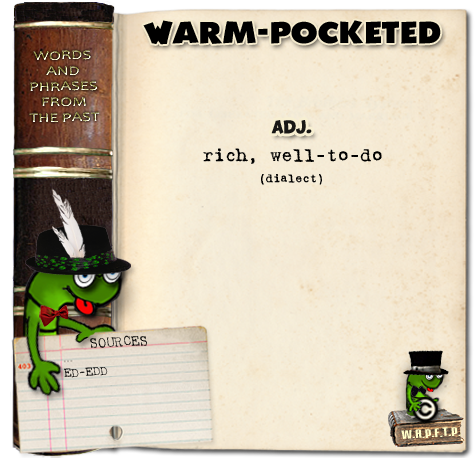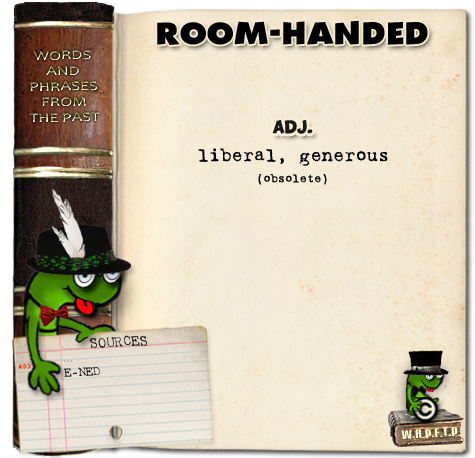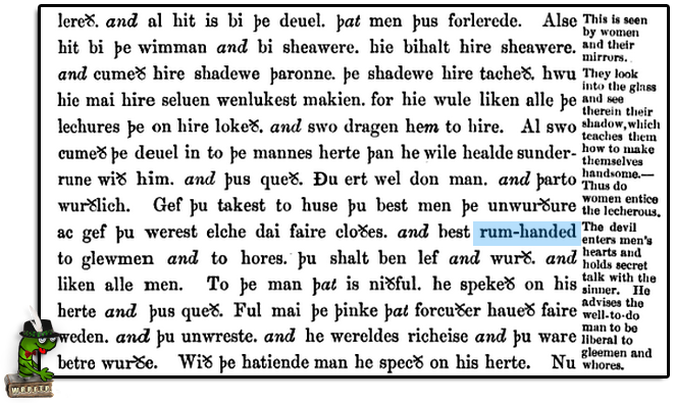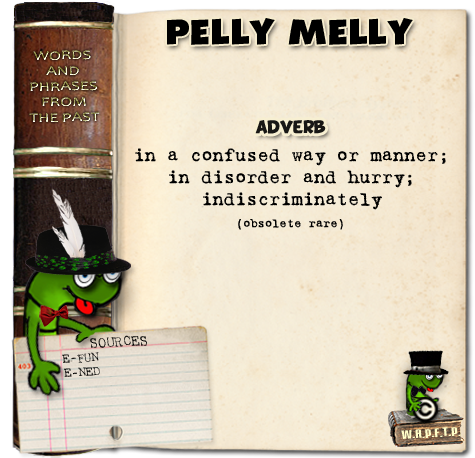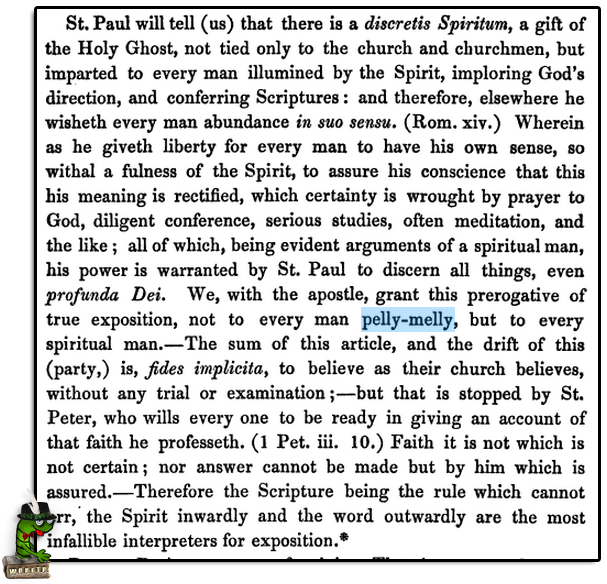|
from Greek ταχύς (takhus) swift + Greek θάνατος (thanatos) death + -ous 1860 - An Expository Lexicon of the Terms, Ancient and Modern, In Medical
and General Science, Robert Mayne, as shown below:
0 Comments
from Latin peragrāt-, ppl. stem of peragrāre, from per through + agrum field, country 1542 - Apophthegmes, that is to saie, Prompte Saiynges. First gathered by Erasmus, Nicolas Udall; see Example below From: The Apophthegmes of Erasmus
Translated into English by Nicolas Udall Literally reprinted from the scarce Edition of 1564 Printed 1877 Book II The Saiynges of Iulius Caesar P. 297 from hyper- + Greek ὕψιστος (hupsistos) highest 1680 - The Counter-plot, Or the Close Conspiracy of Atheism and Schism Opened,
and, so, Defeated; see below from E-NED from sweet + kin 1599 - Nashes Lenten Stuffe, Thomas Nashe; see Example below From: The Complete Works of Thomas Nashe
Edited by the Rev. Alexander B. Grosart Volume V. 1883-84 Nashes Lenten Stuffe P. 249/250 1780 - Poems on Several Occasions, William Woty; see Example below From: Poems on Several Occasions
By William Woty, 1780 The Auctioneers P. 12 From: A Glossary of Provincial Words used in Herefordshire
and some of the Adjoining Counties By Sir George Cornewall Lewis, 1839 Dialogue I. Between Farmer Giles and his Neighbour Bridget P. 24 c 1000 - Anglo-Saxon Gospels; see below From: The Gospel According to Saint John: In Anglo-Saxon and Northumbrian versions Edited by the Rev. Walter W. Skeat, 1878 Chapter XIX P. 170 From: The Booke of the Pylgremage of the Sowle
Translated from the French of Guillaume de Guileville And Printed by William Caxton An. 1483 Edited by Katherine Isabella Cust, 1859 Capitulo XIX P. 19 1870 - Letters, Charles Dickens; see Example below From: The Letters of Charles Dickens
Edited by his Sister-in-law and his Eldest Daughter. Volume II. 1857 to 1870 Printed 1879 P. 509 DEFINITIONS CONTINUED NOUN 4. a playful term for a pert, forward child; a mischievous child; a 'monkey' 5. a clownish fellow; one easily gulled (dialect) 6. applied contemptuously to a crucifix (obsolete) also Iacke an apes, Iacke Napes, Iackenapes, Iack Napis, Iack Napys, Iac Napes, jacanapes, Jack-a-nape, Jack an Ape, jackanaps, Jack and Apes, jackinapse CLICK HERE FOR KEY TO SOURCES from E-NED: Precise origin uncertain. So far as yet found, the word appears first as an opprobrious nickname of William de la Pole, Duke of Suffolk (murdered 1450), whose badge was a clog and chain, such as was attached to a tame ape. Hence, in a poem of 1449 (see First Documented Use), in which other noblemen are denominated by their badges or heraldic emblems, as the Swan, fiery Cresset, Portcullis, Wheat-ear, etc., Suffolk is styled ‘the Ape-clogge’, and in somewhat later satirical invectives is referred to as an ape, and entitled Jack Napes; this being inferentially already a quasi-proper name for a tame ape, as it is seen to be in 1522. (The converse hypothesis, that Suffolk was for some other reason called ‘Jack Napes’, and that this nick-name was transferred from him to the ape, does not, on a review of the facts, seem probable.) But of Jack Nape or Napes, and its relation to an ape or apes, no certain explanation can be offered; it was perhaps, in its origin, merely a playful or whimsical name for a tame ape, and the n- might arise as in nunckle and neye (birds-nie, pigs-ney), or as in the by-names Ned, Noll, Nell, and the -s might be in imitation of the -s of surnames such as Jakkes, Hobbes, Symmes, etc., already in use, so that ‘Jack Napes’ parodied a human name and surname. If this was the standing of the name, it is easy to understand that it might never attain to literary use, till it became the nick-name of Suffolk. Be this as it may, the fact remains that Jack Napes is the earliest form, of which Jack-a-Napes, Jack of Napes (? Naples), Jack-an-ape, Jack-and-apes, are later perversions, apparently attempts of ‘popular etymology’ to make the expression more intelligible. (c 1449 - Political Poems (Rolls) [poem referred to in above Etymology] From: Works of the Camden Society Trevelyan Papers Prior to A.D. 1558 Edited by J. Payne Collier, 1862 P. 66) From: Table-Talk:
The Discourses of J. Selden (a 1654) The Third Edition, 1716 Predestination P. 100 from French voisinage, from voisin neighbour 1642 - Of the Sacred Order and Offices of Episcopacy, Jeremy Taylor; see Example below From: The Whole Works of the Right Rev. Jeremy Taylor
Volume VII, 1828 Episcopacy Asserted; Section XXI. Not lessened by the Assistance and Counsel of Presbyters. P. 84 from Middle French absconser to hide, from Latin absconsus a late pa. pple. for absconditus 1572 - The Lamentation of Lady Scotland; see below from E-NED From: Selections from the Dramatic Works of William T. Moncrieff
Volume the Third, 1851 Tom and Jerry; Or, Life in London (1821) Act III. Scene II P. 75 from prate (vb.) to talk, to chatter + cheat (n.) an old cant term for a name of any object, from Anglo-Saxon ceat a thing ? c 1565 From: Collection of British Authors
Tauchnitz Edition Volume XVI The Disowned (1829) By Sir Edward Bulwer Lytton Copyright Edition 1842 Chapter II P. 11 probably a purely fanciful formation; Cf. smifligate (vb) variant of spiflicate a 1785 - A Classical Dictionary of the Vulgar Tongue, Francis Grose; "To spiflicate, to confound, silence, or dumbfound" From: The Ingoldsby Legends;
Or, Mirth and Marvels, By Thomas Ingoldsby Carmine Edition, 1867 The Babes in the Wood: Or, The Norfolk Tragedy P. 306 1828 - Our Village; Sketches of Rural Character and Scenery, 1824-32, Mary Russell Mitford; see Example below From: Our Village: Sketches of Rural Character and Scenery
By Mary Russell Mitford Volume III, Second Edition, 1828 Our Maying P. 197 c 1200 - Trinity College Homilies (Old English homilies of the twelfth century. From the MS. in the library of Trinity College, Cambridge. Second series)
see below From: Old English Homilies of the Twelfth Century: From the Unique MS. in the Library of Trinity College, Cambridge. Edited by the Rev. Richard Morris Second Series Published for the Early English Text Society, 1873 Pater Noster P. 29 from Old French pêle-mêle, with final e pronounced, or with English adverb suffix -ly; found a century earlier than the simple pell-mell c 1450 - Merlin or the Early History of King Arthur, a Prose Romance; see below From: Merlin Or the Early History of King Arthur: A Prose Romance (about 1450 - 1460 A.D.) Edited by Henry B. Wheatley Part III Published for the Early English Text Society, 1869 Chapter XXII. Fight between Bohors and Pounce. P. 391 From:
Conferences of the Reformers and Divines of the Early English Church on the Doctrines of the Oxford Tractarians; Held in the Province of Canterbury, in the Spring of the Year 1841 By Henry Fish, 1842 On Private Judgment. P. 90 |
Archives
September 2021
|
